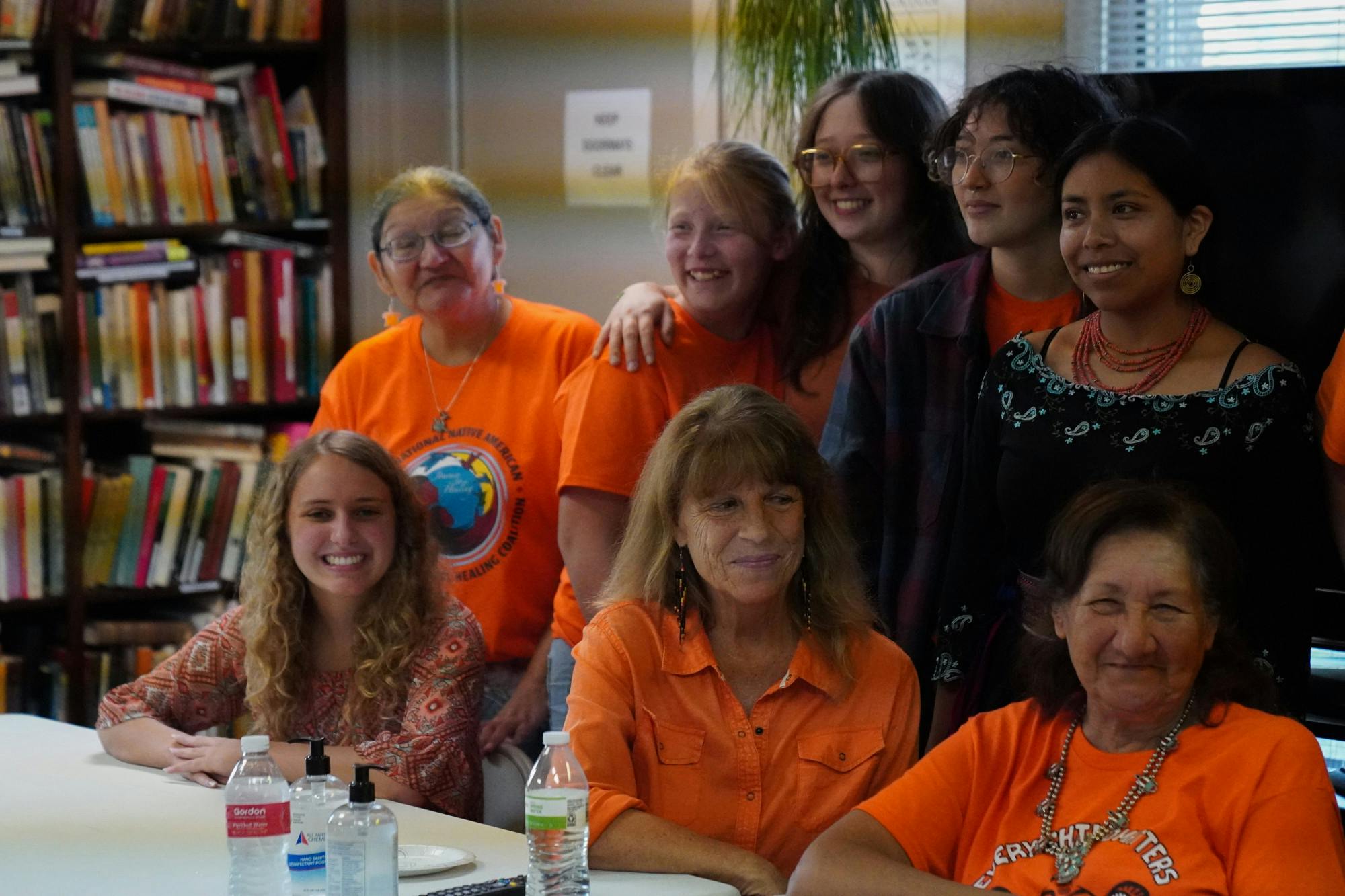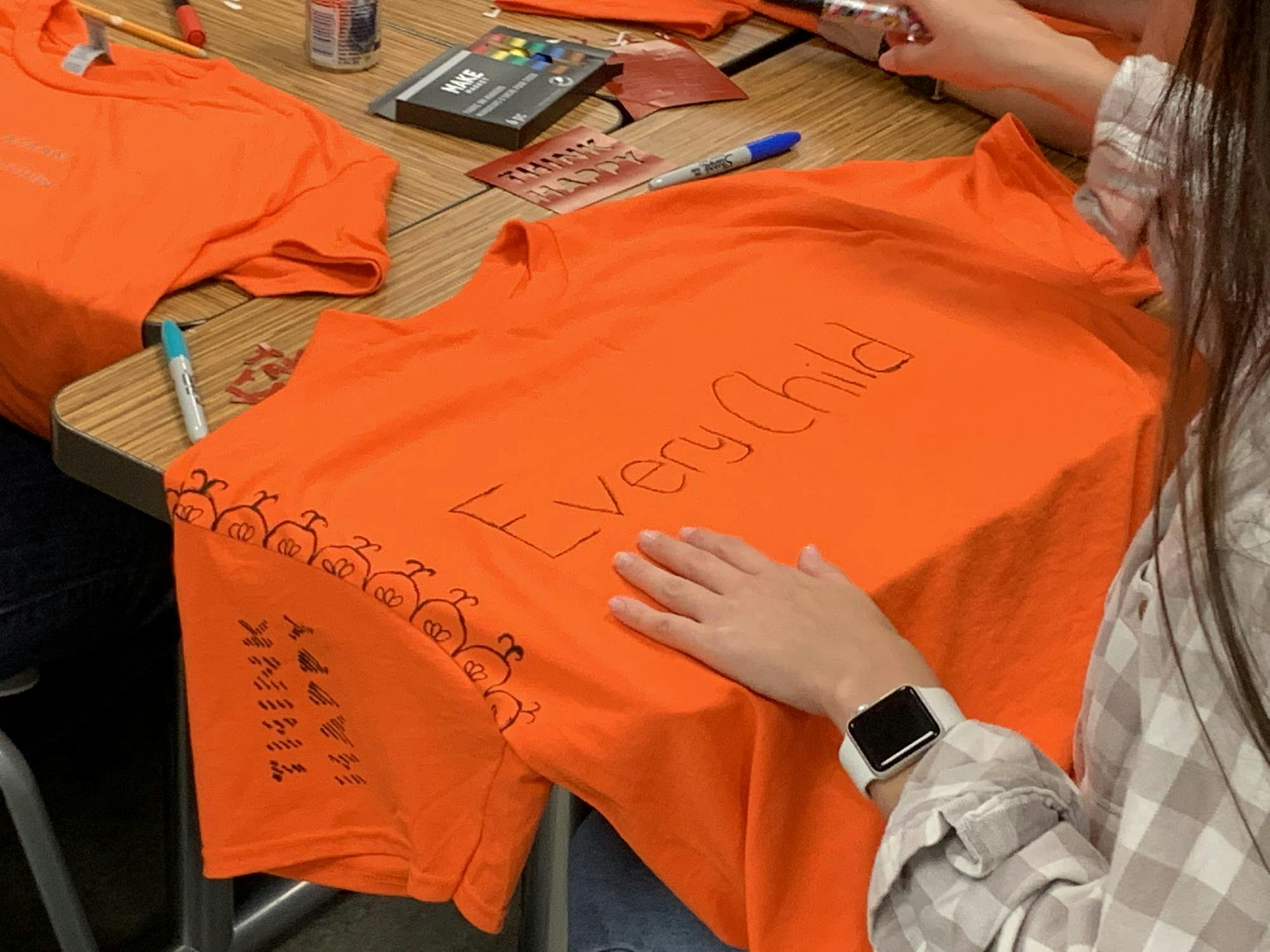In May of 2022, the U.S. Department of the Interior, or DOI, released an investigative report identifying approximately 500 Native American boarding schools across the United States and Canada that existed in the 19th and 20th centuries. Three of them existed in Michigan, and one did not close until 1983.
Now, Indigenous students, faculty and community members of Michigan State University are making sure the atrocities committed against their communities are not forgotten. The National Day for Truth and Reconciliation, commonly known as Orange Shirt Day, honors the countless number of children who were sent to Native American boarding schools, many of whom never returned.
The name of the holiday comes from the story of boarding school survivor Phyllis Webstand, who recalled an orange shirt given to her by her grandmother being taken away upon arriving at a boarding school in 1973.
“It's saying we're remembering the survivors and the trauma that they went through, and the trauma that's been passed down from being put in these boarding schools,” Interim Director of the Native American Institute Kevin Leonard said. “They’re finding thousands of graves on these boarding school sites, unmarked graves of Indian children who were murdered, molested, killed and never made it home to their families.”
The DOI report found that 19 Federal Indian boarding schools accounted for the deaths of over 500 Native American, Alaskan Native and Native Hawaiian children. Further estimates stated that more investigations may put the number in the thousands or tens of thousands.
“There was this idea that if they could take them away from their communities – take them away from their culture – you could eventually assimilate them ... save them from ‘living like savages,’ per se,” Leonard said.
According to the Native American Rights Fund, the federal government, along with many state governments, have not formally apologized for the use of Indian boarding schools.
MSU is a land grant institution, occupying the Lands of the Anishinaabeg – Three Fires Confederacy of Ojibwe, Odawa, and Potawatomi peoples.
Although this is acknowledged by the university, Leonard said it wasn’t always that way.
It wasn’t until the presidencies of former MSU President Samuel Stanley and current Interim President Teressa Woodruff that he felt the Indigenous community at MSU had a say in what was happening at the university, Leonard said.
“We didn’t have a seat at the table,” he said. “A lot of fear and intimidation was how things were run for many years.”

Social relations and policy senior Neely Bardwell, who is co-chair of the MSU North American Indigenous Student Organization, or NAISO, said the history of Native American boarding schools isn't broadly covered in education, specifically in K-12. Bardwell is also a citizen of the Little Traverse Bay Band of Odawa.
Bardwell said the day the DOI report was released felt "historical" to experience. For her, Orange Shirt Day is about recognizing the resilience and strength her community has needed to move forward.
“I think something that non-Indigenous people need to understand is that boarding school trauma and history very much affects every single one of us to this day,” Bardwell said at an Orange Shirt Day gathering this past Friday.
The gathering, called Ma wenjid’ing Wiikinomaad’ying, connected Indigenous students from Central Michigan University, Grand Valley State University and MSU to decorate orange shirts in preparation for Saturday. The gathering was held at MSU's Brody Hall.
“Workshops like this are the greatest expression of that persistence, that right to reconnect to reclaim our culture,” Bardwell said.
On Saturday, the Nokomis Cultural Heritage center in Okemos hosted a similar celebration for Orange Shirt Day. Retired MSU social work Associate Professor Suzanne Cross was one of the many community members in attendance.
Cross performs presentations and artwork all over the country to explore and raise awareness for topics such as heart disease, cancer and, more recently, Native American boarding schools. She does this all through the making of decorative shawls.
“All the things that I focus on is just a gentler way to touch somebody and say ‘what about this?’” Cross said.
Like many others in the community, Cross has felt the effects of the boarding schools; her mother attended the Mount Pleasant Indian boarding school around 1920, she said. Cross said her mother was seven years old.
Local Elder and Air Force Veteran Joe Webster said his mother and father were faced with the choice of either going where they were told, or staying and hiding out.
"We have to keep ourselves alive, because we all belong to some group or another," Webster said.







